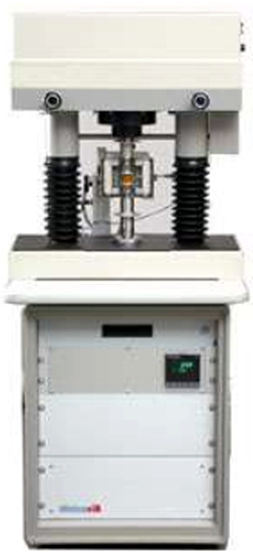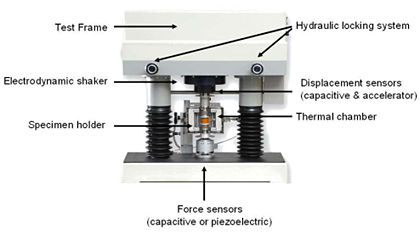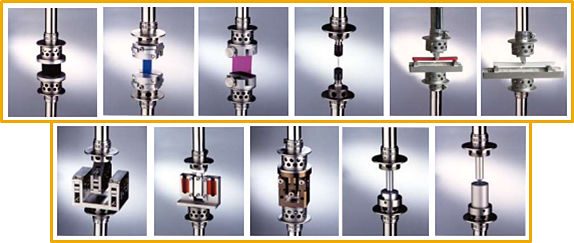|
||||||
 |
Lavendra SinghSenior TechnicianStructures & Materials Characterization Lab
|
|||||
|
|||||||||||||||||||||||||||||||||||||||||||||||||||||||||||||||||||||||||||||||||
|
DMA is a measuring instrument which is used to determine the dynamic characteristics of materials. It applies a dynamic oscillating force to a sample and analyze the material's response to that cyclic force. Basically, DMA determines changes in sample properties resulting from changes in five experimental variables: temperature, time, frequency, force, and strain.
This instrument can be used to characterize mechanical and/or thermal properties of a great numbers of materials including Polymers, Elastomers, Composites, Metals and metallic alloys, Ceramics, glass, Adhesives, Bitumen (solid and pasty), Paint and varnish (gels or films), Cosmetics (gels, spray), Oils, Biomaterials, Leather, skin hair.
Grips
|
|
||||||||||||||||||||||||||||||||||||||||||||||||||||||||||||||||||||||||||||||||
|
|||||||||||||||||||||||||||
|
The Instron CEAST 9340 is a floor standing system designed to deliver 0.30 - 405 J (0.22 - 299 ft-lb) of energy. The standard model includes basic instrumentation and a conveniently mounted machine controller that enables the operator to run the tower and collect basic data. For more in-depth data, the CEAST impact software and data acquisition system can be added. The CEAST 9340 is suitable for a range of impact applications including tensile impact, penetration tests on plates and films, Izod, and Charpy tests.
Designed and built to meet the most common standards including:
Technical Specification:
|
|
||||||||||||||||||||||||||
|
|||||||||||||||||||||||||||||||||||||||||||||
|
The TA Q400 EM is a high- performance, research-grade thermo mechanical analyzer (TMA), with unmatched flexibility in operating modes, test probes, fixtures, and available signals. For standard TMA applications, the Q400 delivers the same performance and reliability. It is ideal for research, teaching, and quality control applications, with performance equivalent to competitive research models.
Technical Specification:
|
|
||||||||||||||||||||||||||||||||||||||||||||


















